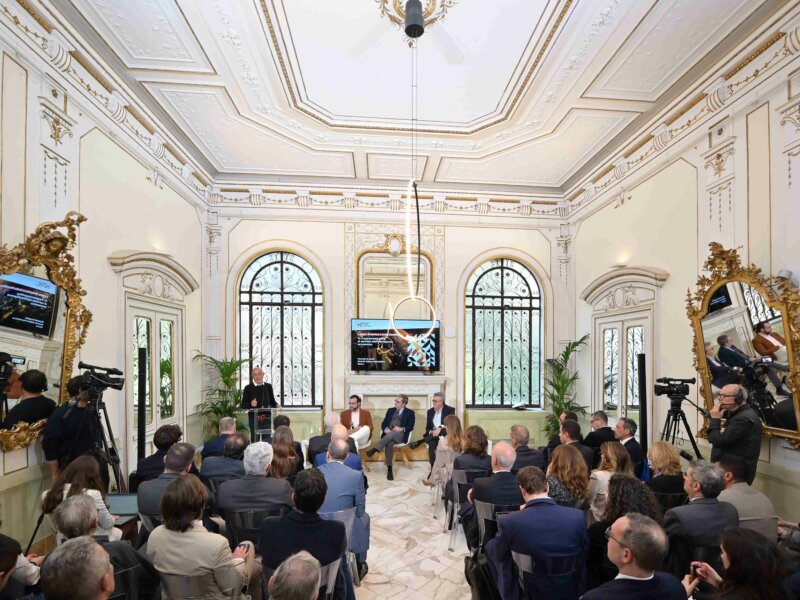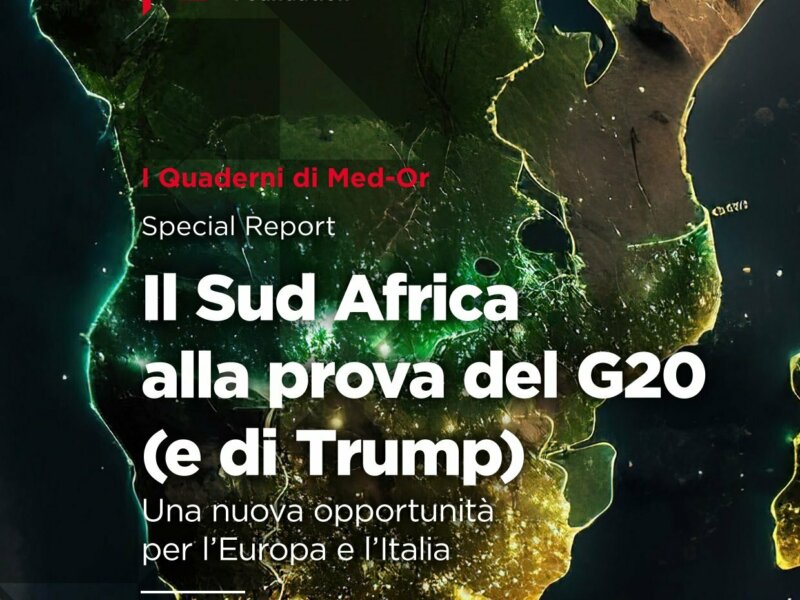Rome hosts International Conference on Development and Migration
At the Conference, Broader Mediterranean countries set up the “Rome Process” – a platform for more inclusive, global and long-term collective action.

Immagini messe a disposizione con licenza CC-BY-NC-SA 3.0 IT
On 23 July, Rome hosted the International Conference on Development and Migration, organised by the Italian Government with its partners in the Broader Mediterranean. The Conference was an important forum for multilateral dialogue on migration, at a time when the global relevance of the Broader Mediterranean region – which extends to the Sahel, the Horn of Africa and the whole Middle East – is growing.
The Conference was attended by delegations from over 20 countries in the region. Participants included: Italian Prime Minister Giorgia Meloni, Minister of Foreign Affairs Antonio Tajani, Minister of Interiors, Matteo Piantedosi and Minister of Infrastructure, Matteo Salvini, as well as heads of state and government, ministers and special representatives from Algeria, Bahrain, Cyprus, Egypt, Ethiopia, Greece, Jordan, Kuwait, Lebanon, Libya, Malta, Mauritania, Morocco, Niger, Qatar, Oman, Saudi Arabia, Spain, Tunisia, Turkey and the United Arab Emirates. The heads of the main international political, financial and humanitarian organisations and institutions such as the European Union, the African Union, the International Monetary Fund, the World Bank and the International Organisation for Migration were also present.
The event marked the beginning of the Rome Process among Mediterranean partners – a “strategic, comprehensive, inclusive and multi-year platform for collective action”. This is a flexible tool that, through high-level dialogue (next year’s summit will be hosted by Tunisia) and closer cooperation on individual issues, can address irregular migration and human trafficking. As repeatedly expressed during the event, to counter these issues it is essential to strengthen regional cooperation at both the political and technical level, with particular reference to the activities carried out by judicial authorities and police forces of individual states, while safeguarding national sovereignty and the security and dignity of migrants, and ensuring full respect for international law and human rights, with a specific focus on refugees or persons in need of international protection. In addition, greater intelligence coordination and the update and harmonization of national legislations will be required to allow for the arrest and prosecution not only of smugglers but of the entire organisations behind human trafficking.
These efforts should be accompanied by investment plans in the migrants’ countries of origin to improve their economic and social conditions. Participants also described legal immigration as a trend to be supported and facilitated. It can strengthen ties between the different peoples of the region as well as political stability, but above all it can foster mutual development, which was the second key theme of the conference. As highlighted by Prime Minister Meloni, the right to emigrate safely must be promoted, in parallel with “the right not to emigrate” and to live and work in countries of origin. In this sense, the initiatives and investments that will be part of the Rome Process must adopt a long-term view, which should not be “predatory or paternalistic, but equalitarian”. Private actors will also play a key role, including through partnerships with the public sector.
Through education, social inclusion, the creation of new skills and the fight against climate change, it will then be possible to eliminate certain chronic vulnerabilities that undermine the stability and security of the Broader Mediterranean. An example of this is the enormous untapped potential of Africa, the real focus of the conference. The continent has long been grappling with widespread poverty, food crises, drought and lack of primary services, which are among the key drivers of migration alongside other macro-issues such as terrorism, civil wars or the destabilising action of external actors.
This is why the Rome Process should be seen in a comprehensive way. Through cooperation on individual issues of common interest, Mediterranean partners can make the region stable and peaceful. This would be of key importance not only for the region itself but also for the rest of the world. The “key importance of the Mediterranean”, to quote President Meloni’s words, is a shared perception of all the countries bordering this region. The event was attended, for example, by states that – although not directly involved in migration issues – know that “working together against criminal networks also means working for the stability” of the Broader Mediterranean.
While unilateral actions might have yielded results in the past, the breadth and depth of today’s challenges require a shared approach. Illegal immigration is one of these. For Italy, it is a strategic priority. Entrusting its resolution to a group of often conflicting nations and interests may seem like a gamble. But, given the region’s geostrategic diversity and complexity, it is a necessary approach in the Mediterranean.



